Editor:
Brandon Sweet
University Communications
bulletin@uwaterloo.ca
Hope and Climate Change: A conversation with Katharine Hayhoe
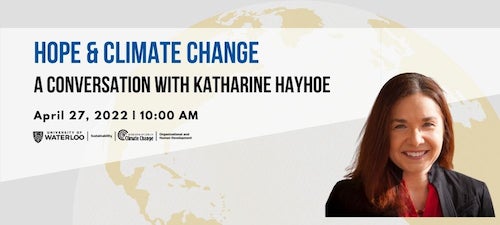
A message from Organizational and Human Development (OHD).
The science on climate change is clear – urgent action is required to deal with the increasing risks of a warming planet. So, what can we do?
Join leading climate scientist, Katharine Hayhoe, and IC3 Executive Director, Sarah Burch, for a conversation on Hope & Climate Change.
The New York Times has called Hayhoe “one of the nation's most effective communicators on climate change.” With Burch, they will discuss strategies for scaling up individual and collective climate action, and how to navigate difficult conversations about our changing planet. They’ll also address your most pressing questions and weigh in on what we’re all wondering – is there hope?
Hosted by the Interdisciplinary Centre on Climate Change, Sustainability Office, and Organizational & Human Development, the intention is to drive action and reignite hope on the climate crisis in our community.
Register now for the virtual event on Wednesday, April 27 at 10:00 a.m.
Waterloo RoboHub helps Avidbots advance robotics innovation
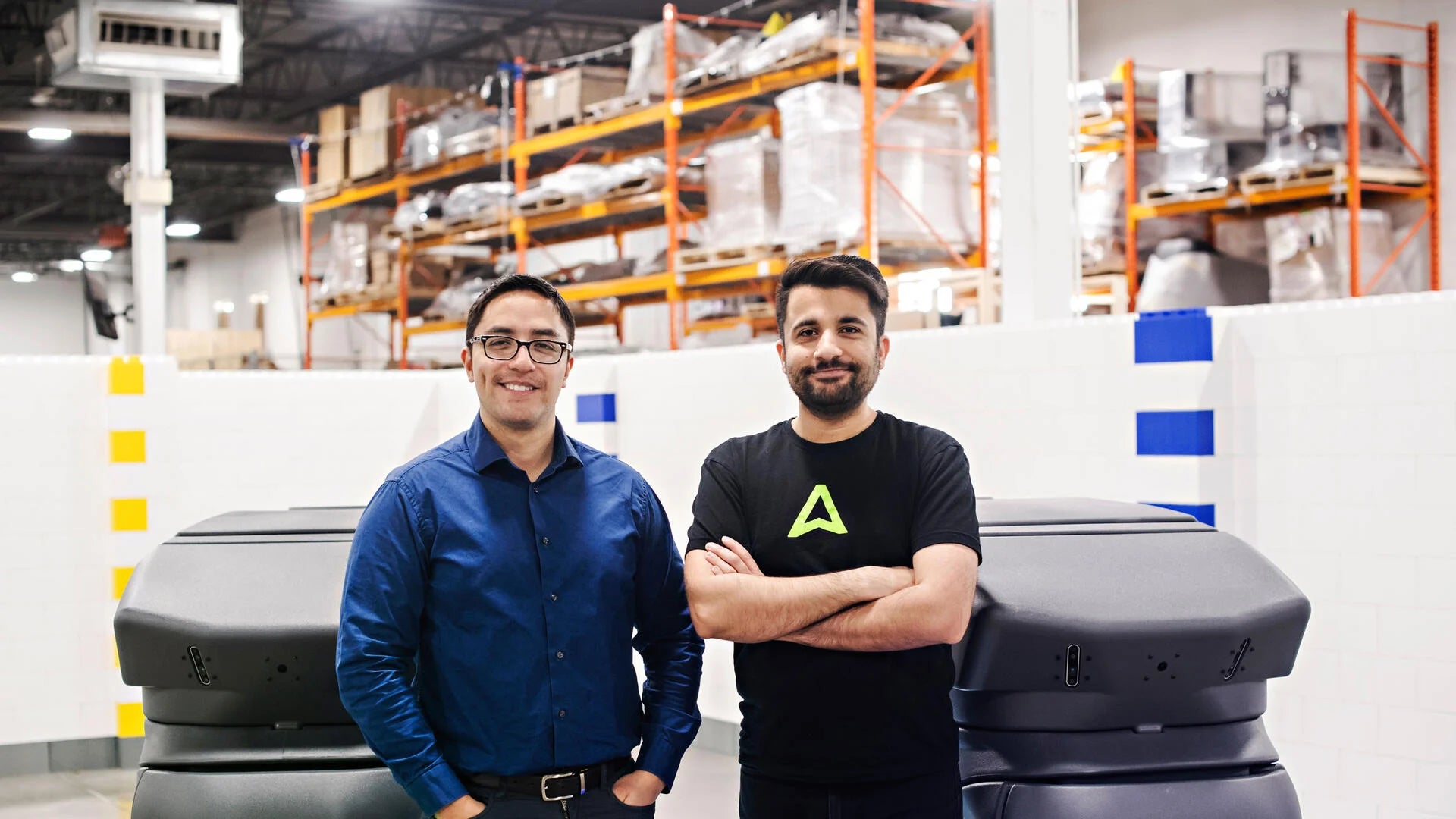
By Stephanie Longeway. This article was originally published on Waterloo News.
When Pablo Molina (BASc ’11), chairman, CTO, VP of Product and co-founder of Avidbots, went searching for additional talent to improve his company's flagship autonomous floor-scrubbing robot, he turned to his former University of Waterloo professor and mentor, William Melek, for help.
“When I attended Waterloo, I co-founded a robotics team and Professor Melek was instrumental in helping us all the way through,” Molina says. “We now have a global company and have to solve really hard problems. I reached out and asked if we could collaborate on research because Waterloo talent is truly among the brightest in the country.”
Avidbots designs, manufactures, sells, services, and supports a fully autonomous floor scrubbing robot called Neo. Its autonomy, called “Avidbots Autonomy”, makes Neo unique in the global marketplace and enables it to clean dynamic indoor commercial spaces like warehouses, box stores, malls, airports, hospitals, and schools without human intervention. Cleaning can be a dirty and dangerous task, and especially in the wake of the pandemic, it’s more important than ever.
Tapping into research for a competitive advantage
The University of Waterloo has the largest and most active robotics and automation research group in Canada, and Waterloo RoboHub brings together all the related technical, educational, research, and service support into one central group.
“Partnering with Waterloo gives a company access to a world-class facility where they will be able to work closely with researchers and students who are very motivated to translate this into commercial technology they can put into their products,” says Melek, director of Waterloo RoboHub.
Melek explains that the robotics expertise within RoboHub allows them to dive deeper into some of the problems industry is grappling with and find research solutions that a company would not otherwise have access to on their own.
“Avidbots had the opportunity to get access to some of our brightest minds working in advanced robotics, artificial intelligence. The intellectual property generated from the research partnership will make them competitive in the marketplace and will put the products at the leading edge of the technology in their industry sector. This is something that is very unique to Waterloo and unlikely found anywhere else,” Melek says.
Powering Canadian robotics innovation
Academic and industry partnerships like Avidbots can infuse research solutions into sectors critical for innovation and economic growth in Canada.
When Molina and his co-founder Faizan Sheikh (BASc ’11) created Avidbots in 2014 they chose to move back to the Waterloo region to scale their business and be close to the University. He says that having access to the startup ecosystem, and research and engineering talent available in the region has been critical to their success.
“Waterloo is an epicentre for robotics, not just in Canada, but globally because we have the talent and the institutions like the University of Waterloo,” Molina says. He is excited about the improvements to Neo and its commercial potential in the long term.
“The collaboration has been helpful in expanding the research capability of Avidbots,” Molina says. “Working with the University of Waterloo will have a positive impact on our growth because we’ve been able to solve very hard problems that would have otherwise taken a very long time with a significant financial cost.”
Engaging with history for Truth and Reconciliation
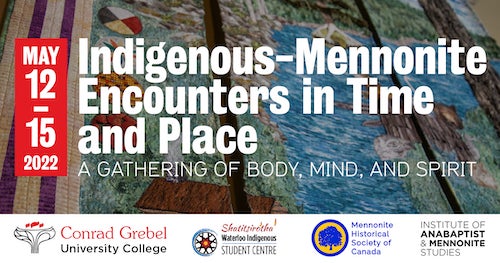
By Ashitha Mantrawadi. This article was originally published on the Conrad Grebel University College website.
“It is incumbent on all settlers in Canada today to understand their relationship with Indigenous peoples as a means to right the injustices of past and present, and to act on the Truth andReconciliation Commission’s 2015 Calls to Action,” says Professor Marlene Epp, one of the organizers of the upcoming Indigenous Mennonite Encounters Conference. The event, coordinated by Conrad Grebel University College is titled, “Indigenous Mennonite Encounters in Time and Place: A Gathering of Body, Mind, and Spirit.” This academic conference and community education event offers insight into the relationship between Indigenous peoples and Mennonite settlers. The organizers anticipate several days of listening, reflection, conversation, and silence.
“All of the presentations in some way deal with encounters between Indigenous peoples and Anabaptist-Mennonites, whether relating to land acquisition and displacement, personal relationships and exchange of knowledge, the role of archives in historical memory, and how to work at reconciliation,” said Marlene. From scholars to storytellers to activists to artists and musicians, presenters from various backgrounds will gather to tell their stories. The keynote address will be offered by Lori Campbell, Associate Vice-President of Indigenous Engagement, University of Regina, and Maria Campbell, writer, educator, activist, and Officer of the Order of Canada.
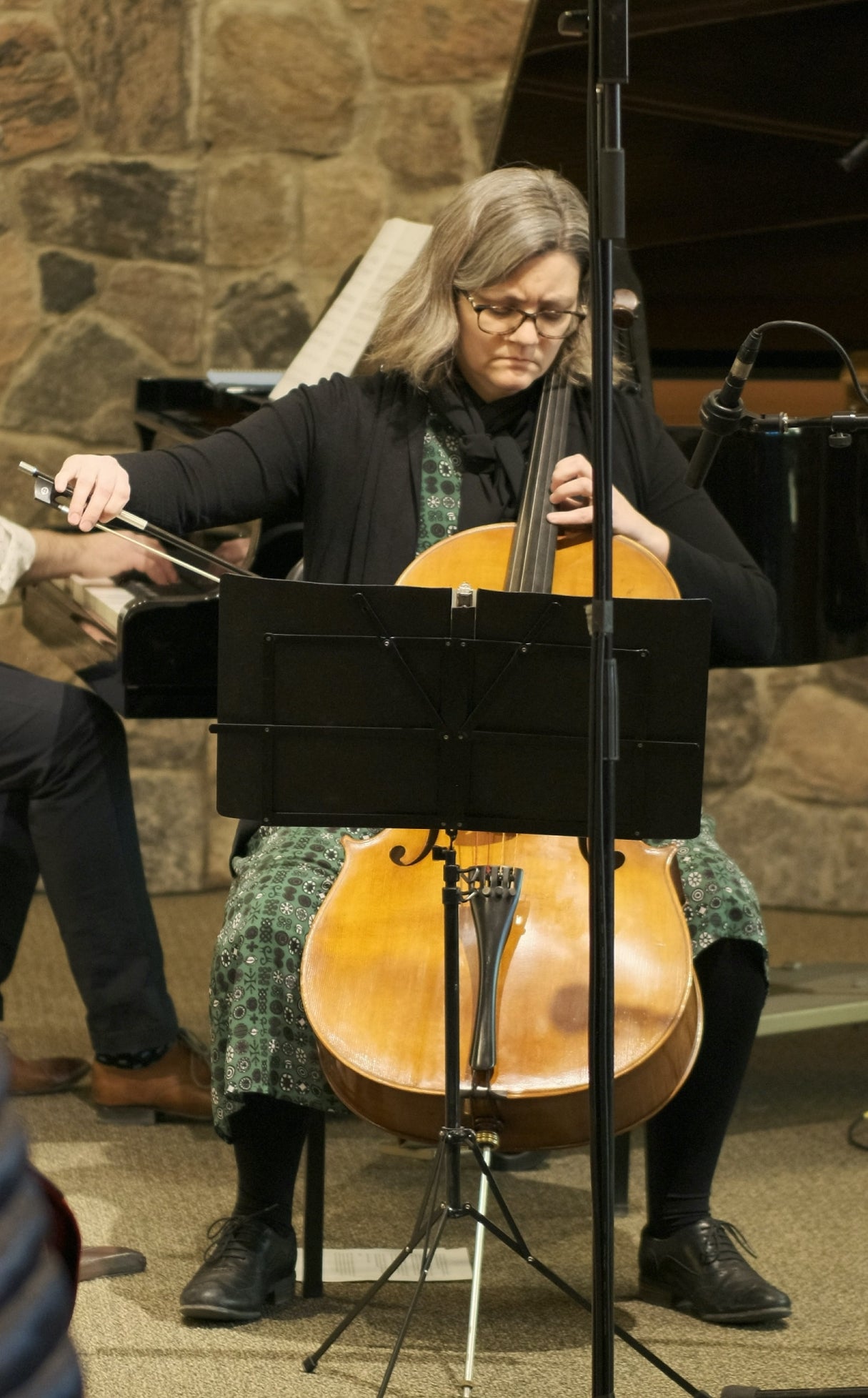
Music will play a significant part in this conference. Grebel Music Professor Karen Sunabacka worked with local musical group, the Andromeda Trio, to explore Indigenous and Mennonite history through music. “Miriam Stewart-Kroeker, cellist of the Andromeda Trio has Mennonite heritage, and I have Métis heritage,” said Sunabacka. “We all felt that it was a good and timely project and one that addresses #83 in the Truth and Reconciliation Commission of Canada Calls to Action which states: We call upon the Canada Council for the Arts to establish, as a funding priority, a strategy for Indigenous and non-Indigenous artists to undertake collaborative projects and produce works that contribute to the reconciliation process.”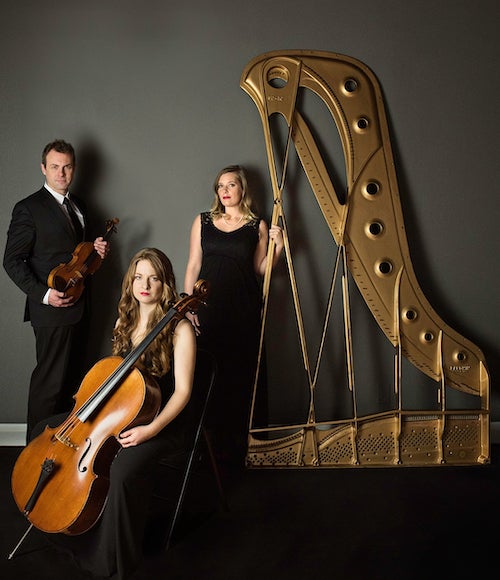
Sunabacka also worked on this project with her mother, Joyce Clouston, to convey text through music. “Our hope is that the piece will show this complicated history in a way that enables further conversation in the long path toward reconciliation,” says Sunabacka.
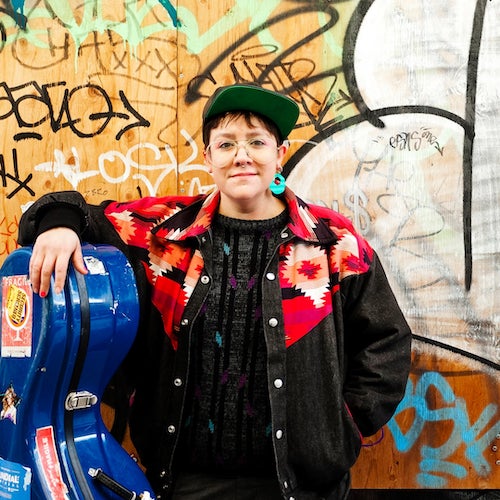
Another highlight of this event is a free public concert, performed by two-spirit Juno Award-nominated Cree cellist, Cris Derksen. She has Cree and Mennonite heritage, and her music sits firmly on the intersection of Indigenous and Mennonite encounters. Derksen was commissioned to write a choral piece for the concert called “kȃ-nîmihitocik: They Who Are Dancing,” and she will perform alongside the Grebel choir led by Music Professor Mark Vuorinen. Derksen will also perform a solo cello piece with electronic works along with a dancer.
It is important to acknowledge that Mennonites were migratory people and have settled on lands of Indigenous peoples. “It is essential that Mennonites understand and come to terms with the implications of that history for their own historical knowledge and to act on Indigenous rights to land in the present day,” said Epp. “We hope that the audience will learn, question, reflect, continue the conversation, and take action to address historical wrongs, as well as develop revised narratives of Mennonite history.”
All are welcome from May 12 to 15 to learn more about Indigenous-Mennonite Encounters. There will also be in-person activities like gathering at the Ceremonial Fire Grounds and an outdoor photography exhibit “On the Land” by Bangishimo Johnston. The intent of the academic sessions and in-person activities is to address the past of Mennonite settlers’ colonial history and make an effort to advance reconciliation and bring justice to Indigenous-settler relations.
Registration is required to attend. Learn more online: https://uwaterloo.ca/indigenous-mennonite-encounters/.
Registration open for forum theatre workshop
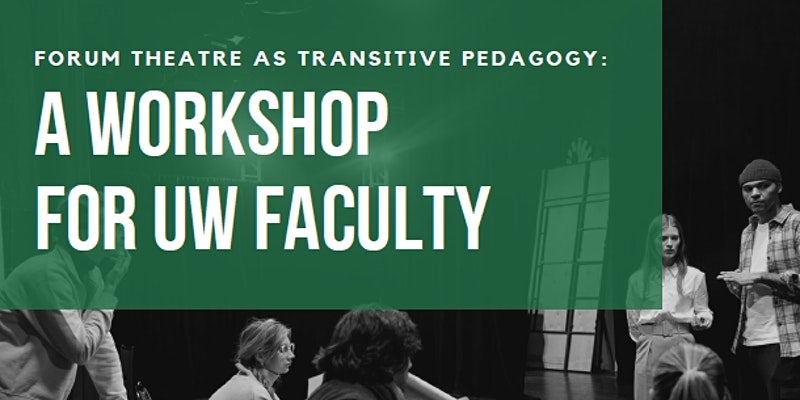
A workshop for Waterloo faculty will give them the skills and tools necessary to utilize Forum Theatre as one of their pedagogical tools in the classroom.
Culture and Language Studies Professor Amir Al-Azraki will be leading the two-day workshop, entitled "Forum Theatre as Transitive Pedagogy: A Workshop for UW Faculty" that will run on May 14 and 15, 2022.
"In this two-day workshop, you will gain the skills and tools to utilize Forum Theatre as one of your pedagogical tools in the classroom," says a note from workshop organizers. "Forum Theatre is one of the techniques of Theatre of the Oppressed originated in Brazil by theatre director and activist Augusto Boal. It is a theatrical game in which participants are transformed from being passive spectators to active participants (spect-actors), engaging in critical dialogue and rehearsing for change."
The workshop is part of a research study, funded by a Renison Research Grant. Your participation may include:
- post-workshop survey (all participants) - 10 minutes
- facilitating a forum theatre activity in your classroom (optional) - 1.5 hours
- follow-up interview (3-6 sampled participants) - 30 minutes
- student survey (3-6 sampled classrooms) - 10 minutes
If you are a Waterloo faculty member, you are eligible to register. For more information, please contact Professor Amir Al-Azraki of the Department of Language and Culture Studies at 519-884-4404 ext. 28671 or via email at aaliazraki@uwaterloo.ca.
You can also register on Eventbrite. Registration closes on May 6.
Upcoming office closure
Campus Wellness locations will be closed today from 8:30 a.m. to 11:30 a.m.
Link of the day
YO JOE! G.I. Joe: The Movie, 35 years old this week
When and Where to get support
Students can visit the Student Success Office online for supports including academic development, international student resources, immigration consulting, leadership development, exchange and study abroad, and opportunities to get involved.
Instructors looking for targeted support for developing online components for blended learning courses, transitioning remote to fully online courses, revising current online courses, and more please visit Agile Development | Centre for Extended Learning | University of Waterloo (uwaterloo.ca).
Instructors can visit the Keep Learning website to get support on adapting their teaching and learning plans for an online environment.
Course templates are available within your course in LEARN to help you build and edit your content and assignment pages quickly.
The following workshops, webinars, and events are offered by the KL team (CTE, CEL, ITMS, LIB):
- Independent Remote Course Design Essentials, self-directed, continuous self-enrollment course in LEARN.
- Independent Blended Course Design (iBlend), self-directed, ongoing
- Copyright Overview for Waterloo Instructors and Staff - self-directed, continuous self-enrollment course in LEARN.
- University of Waterloo Teaching and Learning Conference - April 27 and April 28.
Supports are available for employees returning to campus. Visit IST’s Hybrid Work and Technology guidelines and workplace protocols to assist with the transition.
The Writing and Communication Centre has virtual services and programs to help undergrads, grad students, postdocs and faculty members with academic writing.
- Meet with writing advisors in one-to-one appointments to brainstorm, draft, revise, and polish. No time for an appointment? Try email tutoring for undergrads.
- Beat isolation and make writing progress at weekly Virtual Writing Cafés for grad students and faculty or PJ-Friendly Writing Groups for Undergrads.
- Take an online workshop or apply to our popular Dissertation Boot Camp program.
- Faculty can request custom in-class workshops for their courses, or the WCC can facilitate any existing workshops for student groups.
- Course-integrated support available. Attention faculty and instructors: The application form for Writing and Communication Centre course-integrated support is now available online. We offer five unique support streams for your courses including synchronous and asynchronous workshops and monitored discussion boards.
Co-op students can get help finding a job and find supports to successfully work remotely, develop new skills, access wellness and career information, and contact a co-op or career advisor.
The Centre for Career Action (CCA) has services and programs to support undergrads, grad students, postdocs, alumni, and employees in figuring out what they value, what they’re good at, and how to access meaningful work, co-op, volunteer, or graduate/professional school opportunities. Questions about CCA's services? Live chat, call 519-888-4047, or stop by our front desk in the Tatham Centre 8:30 a.m. to 4:30 p.m., Monday to Friday.
Drop-in to Warrior Virtual Study Halls on Wednesdays from 5:30 p.m. to 7:00 p.m. Come together in this virtual space to set goals and work independently or in groups each week.
Renison's English Language Institute continues to offer virtual events and workshops to help students practice their English language skills.
If you feel overwhelmed or anxious and need to talk to somebody, please contact the University’s Campus Wellness services, either Health Services or Counselling Services. You can also contact the University's Centre for Mental Health Research and Treatment. Good2Talk is a post-secondary student helpline available to all students.
The Library is open with expanded hours for access to book stacks, drop-in individual study space, bookable group study rooms, drop-in access to computers and printers, book pick-up services and IST Help Desk support. Librarian consultations, Special Collections & Archives and the Geospatial Centre are available by appointment. Full details on current services and hours are available on the Library’s COVID-19 Update webpage.
The Faculty Association of the University of Waterloo (FAUW) continues to advocate for its members. Check out the FAUW blog for more information.
The University of Waterloo Staff Association (UWSA) continues to advocate for its members. Check out the UWSA blog for more information.
The Sexual Violence Prevention and Response Office (SVPRO) supports all members of the University of Waterloo campus community who have experienced, or been impacted, by sexual violence. This includes all students, staff, faculty and visitors on the main campus, the satellite campuses, and at the affiliated and federated Waterloo Institutes and Colleges. For support, email: svpro@uwaterloo.ca or visit the SVPRO website.
The Office of Indigenous Relations is a central hub that provides guidance, support, and resources to all Indigenous and non-Indigenous campus community members and oversees the University's Indigenization strategy.
The Waterloo Indigenous Student Centre, based at St. Paul’s University College, provides support and resources for Indigenous students, and educational outreach programs for the broader community, including lectures, and events.
WUSA supports for students:
Peer support - MATES, Glow Centre, RAISE, Women’s Centre - Visit https://wusa.ca/peersupport to book an appointment either in person or online for the Fall term.
Food Support Service food hampers are currently available from the Turnkey Desk 24/7 in the Student Life Centre. Drop off locations are also open again in SLC, DC, DP, SCH and all residences.
Co-op Connection all available online. Check https://wusa.ca for more details.
Centre for Academic Policy Support - CAPS is here to assist Waterloo undergraduates throughout their experience in navigating academic policy in the instances of filing petitions, grievances and appeals. Please contact them at caps@wusa.ca. More information is available.
WUSA Student Legal Protection Program - Seeking legal counsel can be intimidating, especially if it’s your first time facing a legal issue. The legal assistance helpline provides quick access to legal advice in any area of law, including criminal. Just call 1-833-202-4571.
Empower Me is a confidential mental health and wellness service that connects students with qualified counsellors 24/7. They can be reached at 1-833-628-5589.
GSA-UW supports for graduate students:
The Graduate Student Association (GSA-UW) supports students’ academic and social experience and promotes their well-being.
Advising and Support - The GSA advises graduate students experiencing challenges and can help with navigating university policies & filing a grievance, appeal, or petition.
Mental Health covered by the Health Plan - The GSA Health Plan now has an 80 per cent coverage rate (up to $800/year) for Mental Health Practitioners. Your plan includes coverage for psychologists, registered social workers, psychotherapists, and clinical counselors.
Dental Care - The GSA Dental Plan covers 60 to 70 per cent of your dental costs and by visiting dental professionals who are members of the Studentcare Networks, you can receive an additional 20 to 30 per cent coverage.
Student Legal Protection Program - Your GSA fees give you access to unlimited legal advice, accessible via a toll-free helpline: +1-833-202-4571. This advice covers topics including housing disputes, employment disputes, and disputes with an academic institution.
The Graduate House: Open Monday to Friday 11:30 a.m. to 6:00 p.m. We’re open to all students, faculty, staff, and community members. The Graduate House is a community space run by the GSA-UW. Vaccination Records and Government ID continue to be required for all dine-in guests. Graduate students who paid their fees can get discounts and free coffee.
When and Where (but mostly when)
Warriors vs. Laurier Blood Donation Battle. Join our “Waterloo Warriors” team on the Blood.ca website or app. #ItsInYouToGive
Warriors truLOCAL Kickback Program, March 22 to April 22. Purchase high quality locally sourced meat and fish while supporting your favourite Waterloo Warriors varsity team. Find out more.
Examination period, Friday, April 8 to April 26.
Warrior Rec Free Exam Fitness, Monday, April 11 to April 22. Yoga, Zumba, Spin, Barre, Warrior Workout and more. Valid Warrior Rec Membership Required. Find out more.
WaterTalk: Water, Equality and Diversity: an interdisciplinary approach to inter-species relations, presented by Veronica Strang, Thursday, April 21, 10:00 a.m.
NEW - Research Talks, “Health system decision-making in a post COVID-19 Canada,” Tuesday, April 26, 12-1:30 p.m. Registration is required for this online event.
NEW - A Conversation on Hope & Climate Change featuring Katharine Hayhoe and IC3 Executive Director, Wednesday, April 27, 10:00 a.m. Register now .